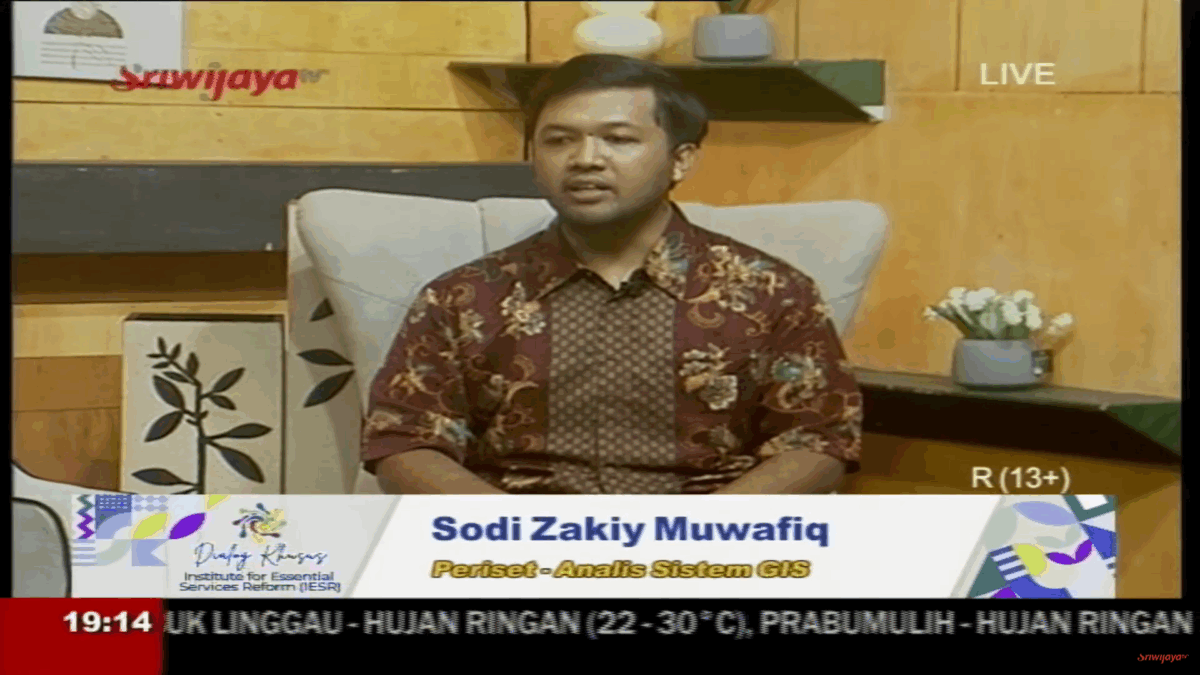Palembang, 16 September 2025 – South Sumatra, a province highly dependent on fossil fuels, especially coal, is shifting towards a more sustainable energy transition. A key step in this process is the issuance of South Sumatra Provincial Regulation Number 2 of 2025, which serves as the foundation for the province’s energy policy. This regulation focuses on three main aspects: accessibility, reach, and energy quality. The goal is to ensure that all residents of South Sumatra have better access to energy without exception. Brilian Faisal, an Expert Planner at the South Sumatra Provincial Development Planning Agency (Bappeda), made this statement during a special dialogue with the Institute for Essential Services Reform (IESR) on Sriwijaya TV on Tuesday (16/9).
“In the context of energy transition, the main focus is currently on the electricity sector, especially for communities not yet reached by the PLN grid,” said Faisal. “Through this policy, South Sumatra is striving to facilitate electricity provision for these unserved areas, aiming to provide more equitable energy access for all residents, particularly in remote regions.”
Faisal further explained that the energy transition process is not easy, especially considering the impact of closing coal-fired power plants. One of the main challenges is addressing the socio-economic impact, particularly for people working in the sector.
“Therefore, it is crucial to prepare new sectors that can replace the fossil energy sector, such as the agricultural sector, which has been identified as a leading sector in South Sumatra based on IESR’s studies,” Faisal stated.
Sodi Zakiy, a Geographic Information Systems Analyst at IESR, added that the energy transition is not limited to the energy sector alone but must also be accompanied by economic transformation. The mining sector, which is currently a pillar of South Sumatra’s economy, will be significantly impacted as its operations decrease or cease. Therefore, it is important to map out new economic sectors that can replace mining.
“IESR’s study shows the potential of the agricultural sector in Lahat Regency, particularly coffee, to replace the mining sector. If communities that were previously dependent on mining shift to agriculture, they can continue their economic activities. This transition process will take time, but we are optimistic that it can proceed smoothly and not be too abrupt for the affected communities,” said Sodi.
Sodi also highlighted the importance of economic calculations in the energy transition. This process must be based on a mature analysis to ensure that the technologies implemented are both functional and efficient. The development of renewable energy technology must be based on in-depth studies and also consider cost-efficiency, so the transition is not only environmentally beneficial but also economically sound.
“One of the first steps toward energy transition and economic transformation in South Sumatra is to update regional energy policies. With policies that better support the development of renewable energy, its implementation can be accelerated. The hope is that this policy can be implemented in the short term so that the community and related sectors can feel the benefits more quickly,” Sodi concluded.

